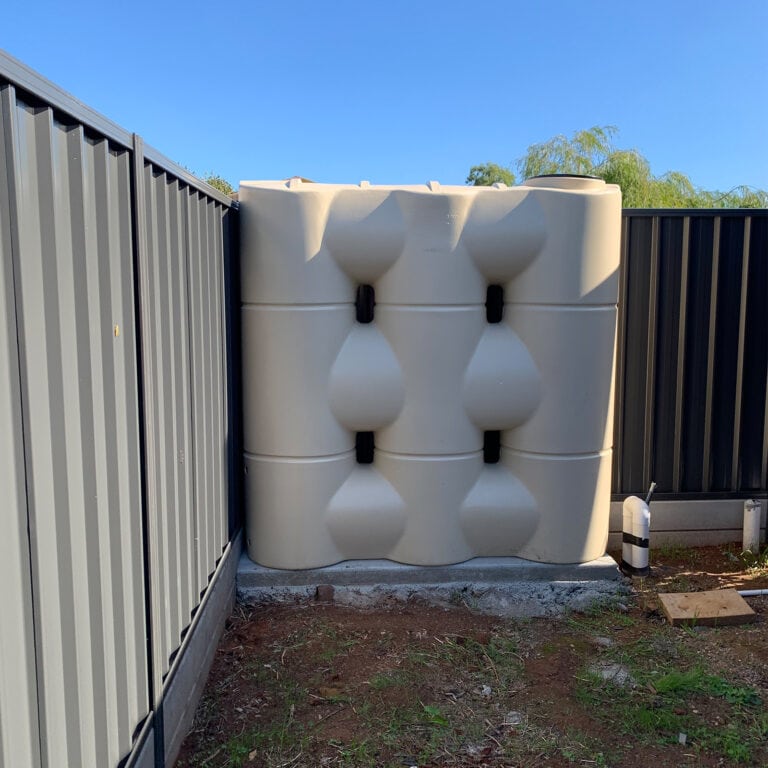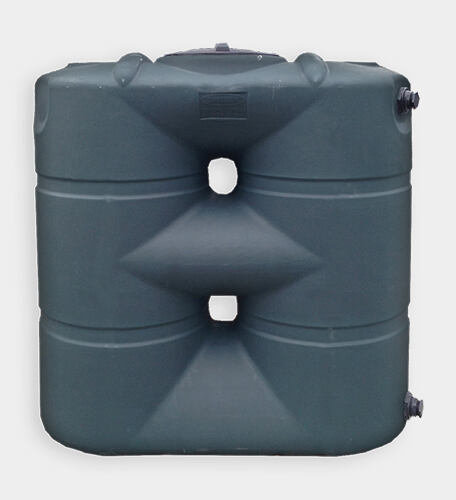Discovering the Different Uses Rainwater Containers for Residential and Commercial Qualities
As the worldwide emphasis on sustainable living practices proceeds to heighten, the utilization of rain storage tanks in both household and commercial settings has actually arised as a significant solution. These storage tanks provide a tank for rainwater harvesting, providing a myriad of possible applications that expand far beyond simple storage. From watering to toilet flushing and landscaping, the adaptability of rain containers is large. Their combination into business residential or commercial properties opens up a realm of opportunities for environmentally conscious organizations. The complex usages of rainwater storage tanks offer an engaging situation for their fostering, not just as a functional water-saving action yet additionally as a testimony to liable resource administration.
Advantages of Utilizing Rainwater Containers
Using rainwater containers provides numerous benefits for both homes and communities in regards to water conservation and sustainability. Among the vital benefits of using rain tanks is the substantial reduction in dependence on mains supply of water - Slimline water tanks. By recording and saving rain for later use, people and communities can reduce their demand for cured water, eventually relieving the worry on water treatment centers and reducing power consumption connected with water transport and therapy
Additionally, rain gathering via storage tanks gives a reliable different water source during times of water constraints or shortages. This kept rain can be used for numerous non-potable functions such as watering, flushing commodes, and washing clothing, lowering the strain on standard water resources. Additionally, utilizing rainwater storage tanks can bring about cost savings for both families and areas by lowering water bills and reducing the demand for expensive framework developments to meet growing water demands.
Essentially, the utilization of rainwater containers offers a sustainable and ecologically pleasant approach to water administration, profiting both specific customers and the broader neighborhood in regards to water preservation, cost-efficiency, and strength.
Rain Tank Usage in Irrigation
Given the benefits of rainwater storage tanks in preserving water resources and minimizing dependence on keys water supply, a significant application lies in utilizing stored rainwater for irrigation purposes - Slimline water tanks. Rainwater harvesting systems can effectively collect and store rainwater, supplying a sustainable water resource for sprinkling yards, grass, and farming fields. By making use of rain for irrigation, homeowner can minimize their reliance on treated water sources, leading to cost savings and ecological advantages

Among the key advantages of making use of rainwater for watering is its purity. Rain is normally soft and complimentary from the next page chemicals and ingredients typically located in mains water, making it perfect for beneficial plants without the threat of damaging results. Additionally, rain goes to ambient temperature, which can benefit plant growth by staying clear of temperature shocks that can accompany cool mains water.
Rainwater Containers for Toilet Flushing

Applying rainwater tanks for commode flushing is an affordable and ecologically pleasant method that can be easily incorporated into both household and industrial homes. The Full Report stored rain can be made use of to flush toilets by linking the tank to the existing pipes system. This simple yet efficient solution can dramatically decrease water consumption in a structure, particularly in locations where water scarcity is a worry.

Incorporating Rain Containers in Landscape Design
These tanks can record and keep rain overflow from roofs, which can after that be used for sprinkling gardens, lawns, and plants. By making use of rainwater for watering functions, property proprietors can reduce their dependence on municipal water sources, leading to set you back financial savings and conservation of priceless water resources.
Along with giving a lasting water source for landscaping demands, rainwater tanks can also help in handling stormwater runoff. By catching rain that would otherwise move right into storm drains pipes, these tanks can alleviate disintegration, decrease flooding dangers, and protect against pollution of natural water bodies. Incorporating rainwater storage tanks in landscaping can contribute to the general visual allure of the residential or commercial property, showcasing a dedication to ecological stewardship.
Business Applications of Rain Containers
Utilizing rainwater storage tanks in business setups offers a sustainable solution for water management and conservation, benefiting companies and the atmosphere alike. Industrial applications of rain storage tanks are varied and significantly preferred due to the cost financial savings and ecological benefits they give. One vital industrial usage is for irrigation functions, where gathered rainwater can be used to water landscaping, yards, and farming areas surrounding industrial residential properties. This can cause considerable decreases in water bills and dependence on community water resources.
In addition, rainwater gathered in containers can be treated and used for non-potable purposes within industrial properties, such as flushing bathrooms, cleansing, and cooling down systems. In general, the consolidation of rain containers in industrial settings provides a Clicking Here practical and ecologically accountable strategy to water monitoring.
Conclusion
Finally, rainwater storage tanks provide countless advantages for both residential and commercial residential properties. From watering to commode flushing and landscape design, the usage of rain containers can aid conserve water resources and decrease water bills. Additionally, integrating rainwater storage tanks in commercial settings can result in significant cost financial savings and ecological advantages. On the whole, the versatility and sustainability of rain containers make them a beneficial financial investment for any kind of homeowner looking to enhance water effectiveness.